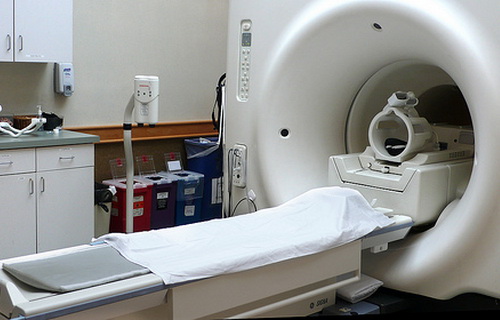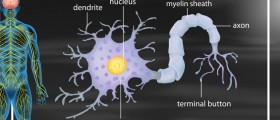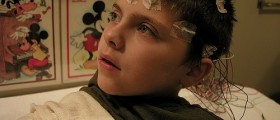
What is multiple sclerosis?
Multiple sclerosis is considered to be an autoimmune disease affecting the myelin sheath of the nerves. As the immune system damages the myelin sheath of the nerves, the electrical communication between the brain and the spinal cord with the rest of the body is hampered. The damage to the nerves is generally irreversible, hence the progressive nature of the disease. The disease gets its name from sclerosis, which means the building up of scar tissue in place of the myelin sheath. The symptoms of multiple sclerosis vary from patient to patient depending up on the site of sclerosis and the extent to which myelin sheath has been destroyed. The disease is two to three times more common in females.

There is no cure for MS
Specialists have still not been able to find a cure for multiple sclerosis. It is an autoimmune disease in which progressive demyelination of the nerves takes place. So the conduction of electrical impulse from the brain and the spinal cord to other body parts is impaired. Although the nerves regain some of the myelin, the speed of demyelination is much more than the speed of regeneration. So, the disease continues to progress. Although there is no treatment to stop the disease process, there are various medications to provide relief from the severity of the symptoms and to make the disease go into remission.
- Important notification about information and brand names used in this slideshow!
- Photo courtesy of Gerda by Flickr : www.flickr.com/photos/tschoerda/429243020/

Symptoms of multiple sclerosis
Symptoms of multiple sclerosis vary from patient to patient depending up on the site of demyelination and often go unrecognized until the disease has reached an advanced stage. Some of the common symptoms encountered in multiple sclerosis include: • Problems related to micturition: The patient is unable to empty her bladder completely and feels frequent urge to go to the toilet. She may also complain of nocturia. • Bowel problems: Patients of multiple sclerosis often suffer from severe constipation which if untreated may lead to bowel incontinence. • Decline in cognitive functions: Around 50% of patients find difficulty in concentrating, finding appropriate words, recalling things, etc. • Depression: Many patients of MS suffer from depression, which, according to scientists, is related to atrophy of certain parts of hippocampus. • Emotional changes: As it is often difficult for patients to deal with a diagnosis of MS, they may undergo emotional changes. Other common symptoms include: • Headache • Dizziness • Fatigue • Numbness or weakness of different parts of the body • Sexual dysfunction • Muscle spasms • Difficulty in walking • Slurring of speech • Blurring of vision
- Important notification about information and brand names used in this slideshow!
- Photo courtesy of niXerKG by Flickr : www.flickr.com/photos/kgnixer/5932263355/
- www.mayoclinic.com/health/multiple-sclerosis/DS00188/DSECTION=symptoms
- http://www.medicalnewstoday.com/articles/37556.php

Causes of multiple sclerosis
There are various postulations regarding the cause of multiple sclerosis. They include: • Genetic: A study carried out by the Universities of Cambridge and Oxford in 2011 has identified around 50 genes that may be responsible for genetic transmission of MS. • Environmental factors: According to scientists, people exposed to more sunlight are less likely to suffer from MS. Vitamin D is believed to play a protective role against MS. Similarly, it has been seen that patients of MS have levels of uric acid which are lower than normal. This has made experts to believe that uric acid also protects from MS. • Infections: Some people believe that infection by Epstein-Barr virus and varicella act as trigger for MS. • Salt: Researchers from Massachusetts Institute of Technology have reported that consuming too much salt can act as a trigger for autoimmune diseases like MS.
- Important notification about information and brand names used in this slideshow!
- Photo courtesy of _DJ_ by Flickr : www.flickr.com/photos/flamephoenix1991/8376271918/
- www.mayoclinic.com/health/multiple-sclerosis/DS00188/DSECTION=causes
- http://www.medicalnewstoday.com/articles/37556.php

Risk factors for multiple sclerosis
Several factors increase a person’s risk of developing multiple sclerosis. They include: • Age: Multiple sclerosis usually develops in people between the ages of 20 and 50. The usual age at which it strikes is around 30 years. • Gender: Multiple sclerosis affects women three times more than men. • Race: It is most commonly seen in people of Caucasian ethnicity. • Family history: Around 2 to 4% of patients who develop multiple sclerosis have a close family member already suffering from the disease. When it runs in families, multiple sclerosis usually affects the family members at the same age. • Other autoimmune disease: People suffering from other autoimmune diseases like thyroid disease, inflammatory bowel disease and type I diabetes are at an increased risk of developing multiple sclerosis.
- Important notification about information and brand names used in this slideshow!
- Photo courtesy of Eduardo Amorim by Flickr : www.flickr.com/photos/bombeador/5507718326/
- www.mayoclinic.com/health/multiple-sclerosis/DS00188/DSECTION=risk-factors
- http://umm.edu/health/medical/reports/articles/multiple-sclerosis

What to expect from your doctor?
Expect your doctor to ask a number of questions when you meet him for the first time with your symptoms. He would like to know the origin of the symptoms. For example, if you are complaining of numbness of limbs, he would like to know which limb was affected first. He would like to know whether the symptoms are persistent or whether they occur occasionally. Severity of the symptoms is another thing he would like to know in detail. He may ask if there are any precipitating factors for your symptoms. Similarly, is there anything in particular which relieves the symptoms? He would also ask to know the relevant family history. Therefore, before you go and meet your doctor, it is advisable that you jot down the answers to these questions. Facing a barrage of questions, if you are unprepared, may leave you flustered.
- Important notification about information and brand names used in this slideshow!
- Photo courtesy of Jhayne by Flickr : www.flickr.com/photos/foxtongue/6788372078/

Role of lumbar puncture in the diagnosis of multiple sclerosis
Lumbar puncture plays an important role in the diagnosis of multiple sclerosis. In patients with this condition, spinal fluid shows many immunoglobulins and oligoclonal bands as well as proteins obtained up on the breakdown of myelin. The presence of these things is suggestive of an autoimmune disease. The oligoclonal bands are present in more than 90% of patients of multiple sclerosis. Immunoglobulins may be present in many other diseases affecting the brain and spinal cord, but when present along with oligoclonal bands, they are an almost sure indicator of multiple sclerosis. However, it is important to remember that in almost 5 to 10% of patients with multiple sclerosis, there are no abnormal findings seen on lumbar puncture. That does not rule out multiple sclerosis. The positive findings on a spinal tap may also be seen in several other conditions. Therefore, the results obtained on a lumbar puncture alone cannot be a basis of diagnosis of multiple sclerosis.

Findings of MRI in case of multiple sclerosis
Magnetic resonance imaging is the most sensitive diagnostic tool for detecting multiple sclerosis. MS is basically an inflammatory autoimmune disease that targets the nervous system. The characteristic features of the disease include demyelination and injury to the nerve cells. MRI provides a clear view of tissue injury, lesion activity and accumulation of plaques in the brain. View obtained on MRI is far clearer compared to other diagnostic modalities like CT scans. With the help of newer MRI techniques like volumetric magnetic resonance imaging, etc., one can even detect occult microscopic disease that would not be visible otherwise. So, it is easier to calculate the disease burden. It is important to remember that MRI is not so useful in elderly people and in the presence of other inflammatory diseases of the brain like acute encephalomyelitis.

Medications used for slowing multiple sclerosis
Some of the important medicines used for getting relief from the symptoms and slowing down the progress of multiple sclerosis include: • Beta interferons: These medicines are useful in slowing the progress of the disease and reducing its severity. However, they have many temporary side-effects. • Glatiramer acetate (Copaxone): It acts by blocking the action of the immune system on the myelin sheaths. The disease is administered in the form of subcutaneous injection once daily. • Fingolimod (Gilenya): Given orally, it traps the immune cells in the lymph nodes. The drug can cause severe bradycardia and may cause chickenpox in patients who are not immunized. • Natalizumab (Tysabri): It acts by preventing the movement of the immune cells across the blood brain barrier. However, it can cause fatal progressive multifocal leukoencephalopathy. Hence, its use is reserved only for those patients who do not respond to other medications. • Mitoxantrone: It acts as an immunosuppressant but has potent side effects. • Teriflunomide (Aubagio): It reduces the relapse of MS but is highly hepato-toxic.

Home remedies for relief from symptoms of multiple sclerosis
Simple steps that can provide the patient some relief from the symptoms of multiple sclerosis include: • Taking enough rest: As multiple sclerosis is often associated with fatigue, it is imperative that the patient takes enough rest. Taking rest eases the intensity of the symptoms. • Exercise regularly: Doing moderate amount of exercise daily may be beneficial in improving the muscle tone and strength. It may help in better control of the bladder, provide relief from constipation, help in better balance and coordination, and reduce the fatigue. • Eat a balanced diet: Eating a healthy and balanced diet boosts the immune system and is overall good for the patient’s body. • Keep away from warm places: It has been seen that the symptoms of multiple sclerosis worsen in heat. So, keep away from warm places, try to spend the time in air-conditioned places, and drink lots of cold beverages.

Interferon and Multiple Sclerosis
What's Inside : - Five patients who were on interferon for four conditions share their real-life experiences - Interferon facts your doctor didn’t share - A bonus interferon fact sheet — all important data on a single page - All the research — already done for you! - Possible alternative to interferon for your condition - Updates and news about interferon in your inbox - Become a part of the SteadyHealth community to talk about interferon and the conditions it treats http://www.steadyhealth.com/interferon-side-effects/
- Important notification about information and brand names used in this slideshow!
- Slide by steadyhealth.com



























Your thoughts on this
Loading...